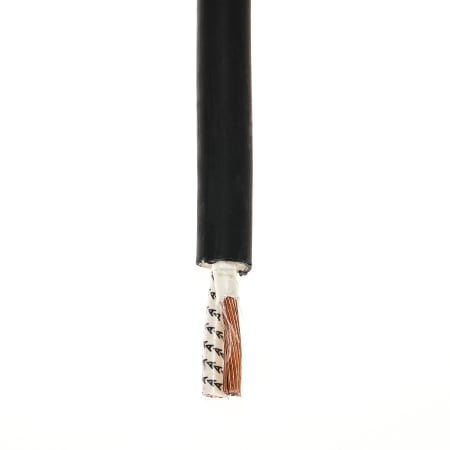M24643/15
Refine Results
11 items
loading content
Spec #: M24643/15-08UN
MFR #: M24643/15-08UN
GCG #: LSDSGU100
CUT CUSTOMIZATION: This product can be cut in various lengths. Cut selections can be made in the cart.
Requires Quote
Add Cut Lengths in Cart
Add cut lengths in cart
Spec #: M24643/15-04UN
MFR #: M24643/15-04UN
GCG #: LSDSGU14
CUT CUSTOMIZATION: This product can be cut in various lengths. Cut selections can be made in the cart.
Requires Quote
Add Cut Lengths in Cart
Add cut lengths in cart
Spec #: M24643/15-09UN
MFR #: M24643/15-09UN
GCG #: LSDSGU200
CUT CUSTOMIZATION: This product can be cut in various lengths. Cut selections can be made in the cart.
Requires Quote
Add Cut Lengths in Cart
Add cut lengths in cart
Spec #: M24643/15-05UN
MFR #: M24643/15-05UN
GCG #: LSDSGU23
CUT CUSTOMIZATION: This product can be cut in various lengths. Cut selections can be made in the cart.
Requires Quote
Add Cut Lengths in Cart
Add cut lengths in cart
Spec #: M24643/15-01UN
MFR #: M24643/15-01UN
GCG #: LSDSGU3
CUT CUSTOMIZATION: This product can be cut in various lengths. Cut selections can be made in the cart.
Requires Quote
Add Cut Lengths in Cart
Add cut lengths in cart
Spec #: M24643/15-10UN
MFR #: M24643/15-10UN
GCG #: LSDSGU300
CUT CUSTOMIZATION: This product can be cut in various lengths. Cut selections can be made in the cart.
Requires Quote
Add Cut Lengths in Cart
Add cut lengths in cart
Spec #: M24643/15-02UN
MFR #: M24643/15-02UN
GCG #: LSDSGU4
CUT CUSTOMIZATION: This product can be cut in various lengths. Cut selections can be made in the cart.
Requires Quote
Add Cut Lengths in Cart
Add cut lengths in cart
Spec #: M24643/15-11UN
MFR #: M24643/15-11UN
GCG #: LSDSGU400
CUT CUSTOMIZATION: This product can be cut in various lengths. Cut selections can be made in the cart.
Requires Quote
Add Cut Lengths in Cart
Add cut lengths in cart
Spec #: M24643/15-08UN
MFR #: M24643/15-08UN
GCG #: LSDSGU100
CUT CUSTOMIZATION: This product can be cut in various lengths. Cut selections can be made in the cart.
Requires Quote
Add Cut Lengths in Cart
Add cut lengths in cart
Spec #: M24643/15-04UN
MFR #: M24643/15-04UN
GCG #: LSDSGU14
CUT CUSTOMIZATION: This product can be cut in various lengths. Cut selections can be made in the cart.
Requires Quote
Add Cut Lengths in Cart
Add cut lengths in cart
Spec #: M24643/15-09UN
MFR #: M24643/15-09UN
GCG #: LSDSGU200
CUT CUSTOMIZATION: This product can be cut in various lengths. Cut selections can be made in the cart.
Requires Quote
Add Cut Lengths in Cart
Add cut lengths in cart
Spec #: M24643/15-05UN
MFR #: M24643/15-05UN
GCG #: LSDSGU23
CUT CUSTOMIZATION: This product can be cut in various lengths. Cut selections can be made in the cart.
Requires Quote
Add Cut Lengths in Cart
Add cut lengths in cart
Spec #: M24643/15-01UN
MFR #: M24643/15-01UN
GCG #: LSDSGU3
CUT CUSTOMIZATION: This product can be cut in various lengths. Cut selections can be made in the cart.
Requires Quote
Add Cut Lengths in Cart
Add cut lengths in cart
Spec #: M24643/15-10UN
MFR #: M24643/15-10UN
GCG #: LSDSGU300
CUT CUSTOMIZATION: This product can be cut in various lengths. Cut selections can be made in the cart.
Requires Quote
Add Cut Lengths in Cart
Add cut lengths in cart
Spec #: M24643/15-02UN
MFR #: M24643/15-02UN
GCG #: LSDSGU4
CUT CUSTOMIZATION: This product can be cut in various lengths. Cut selections can be made in the cart.
Requires Quote
Add Cut Lengths in Cart
Add cut lengths in cart
Spec #: M24643/15-11UN
MFR #: M24643/15-11UN
GCG #: LSDSGU400
CUT CUSTOMIZATION: This product can be cut in various lengths. Cut selections can be made in the cart.
Requires Quote
Add Cut Lengths in Cart
Add cut lengths in cart

